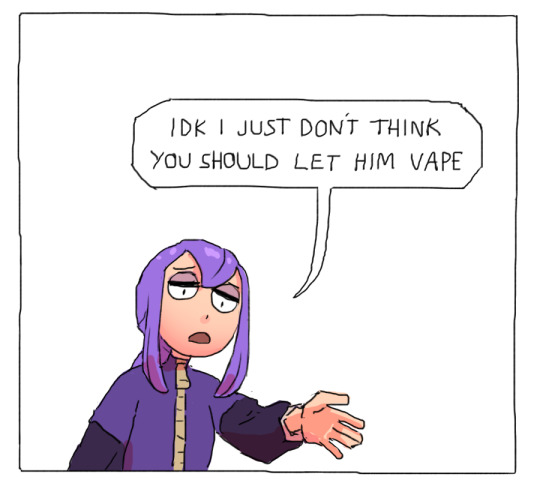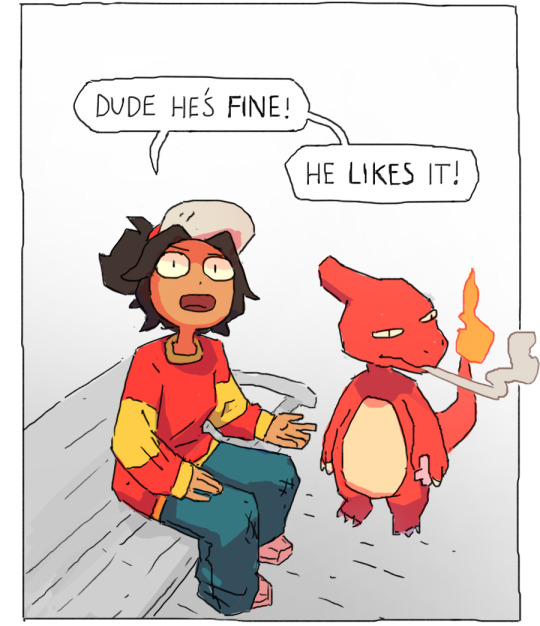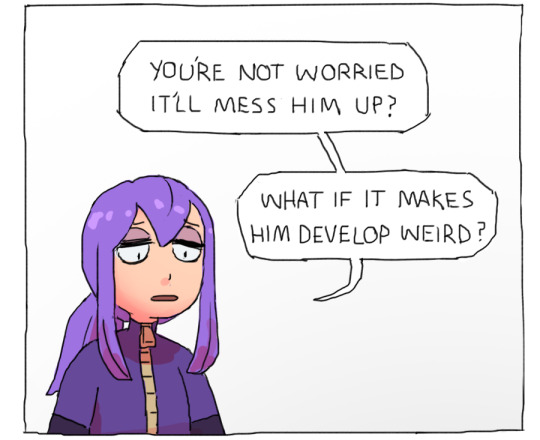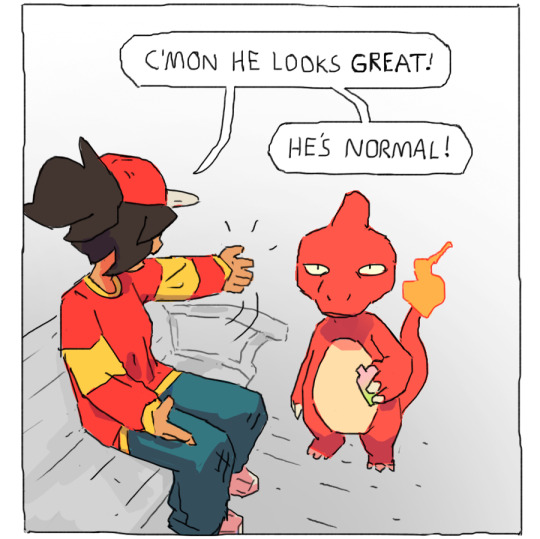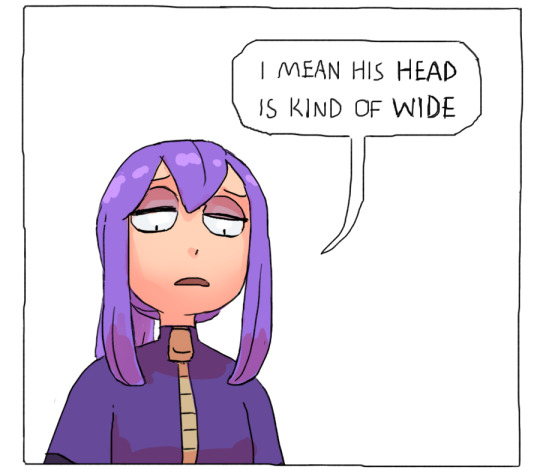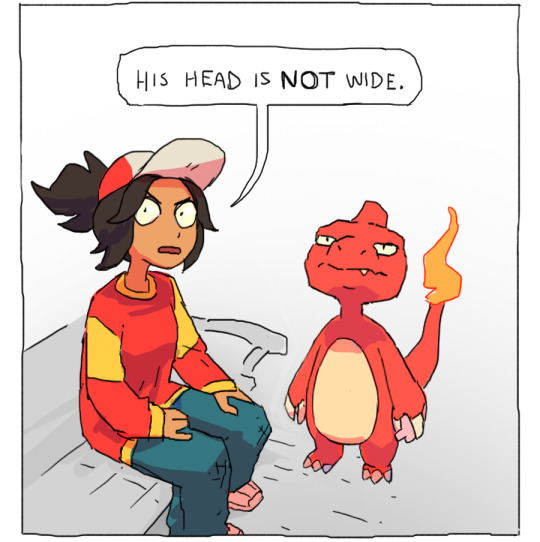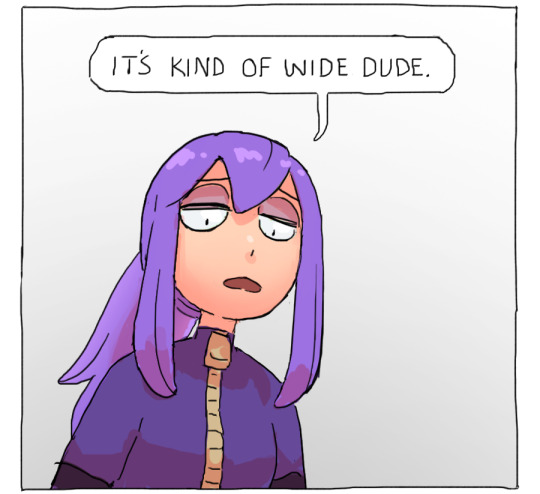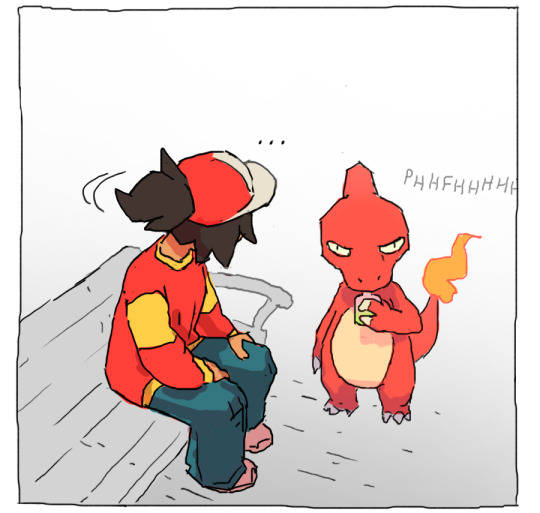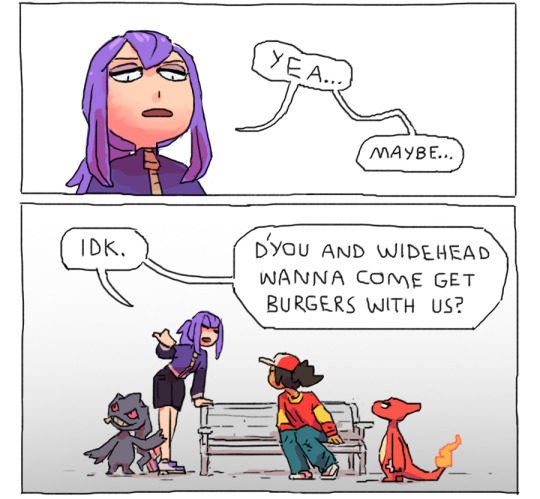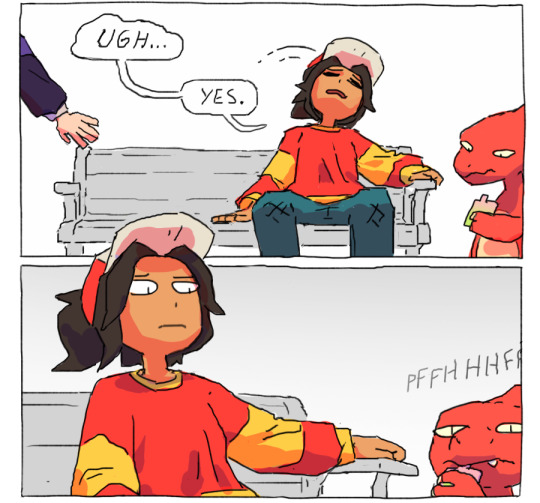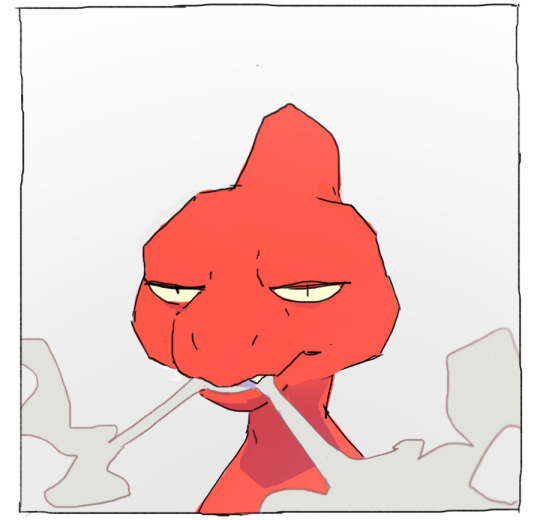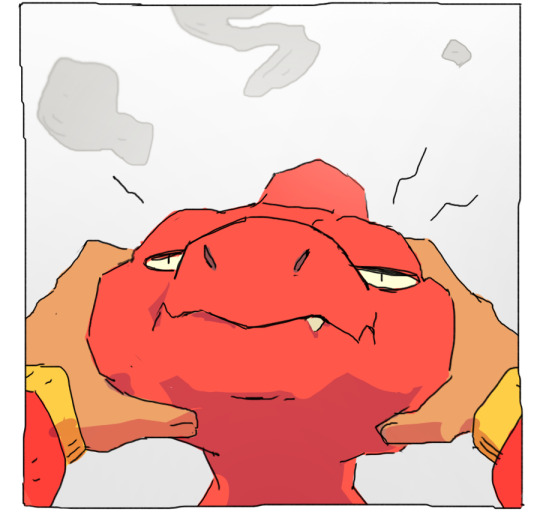Homosexual Aromantic Cis man- Sporadic fanfic writer- Ice Monotype main
Don't wanna be here? Send us removal request.
Text


Crayfish!!!
Part of my Great Lakes fakemon pokedex project! You can find all my fakemon posts under the tag Laken Fakemon!
480 notes
·
View notes
Text




FROGS!!!
Part of my Great Lakes fakemon pokedex project! You can find all my fakemon posts under the tag Laken Fakemon!
430 notes
·
View notes
Text
no little punk girl don't walk into the lightning storm! your outfit is so conductive! little punk girl nooooooo
107K notes
·
View notes
Photo
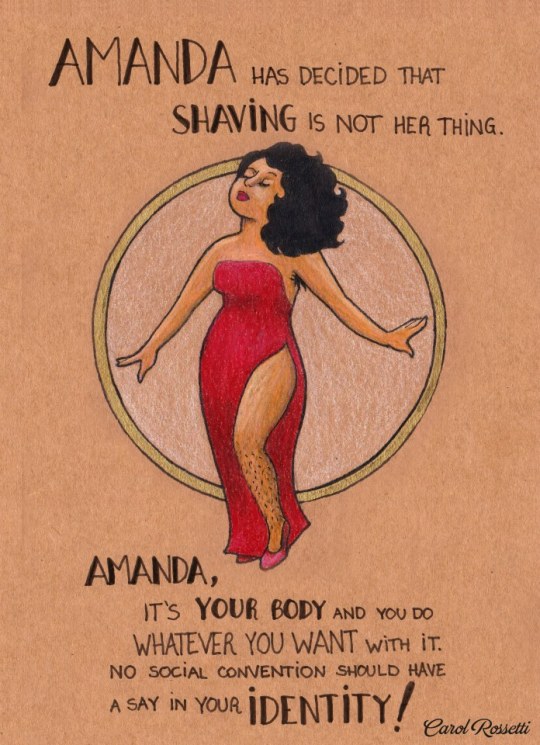


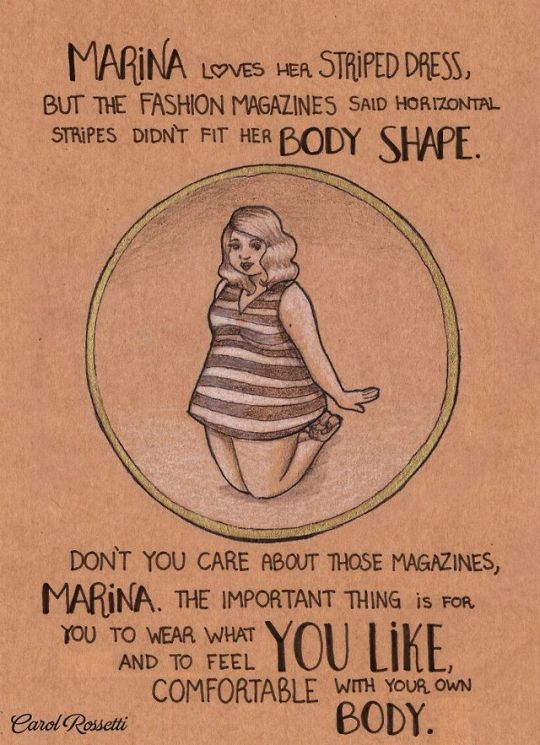

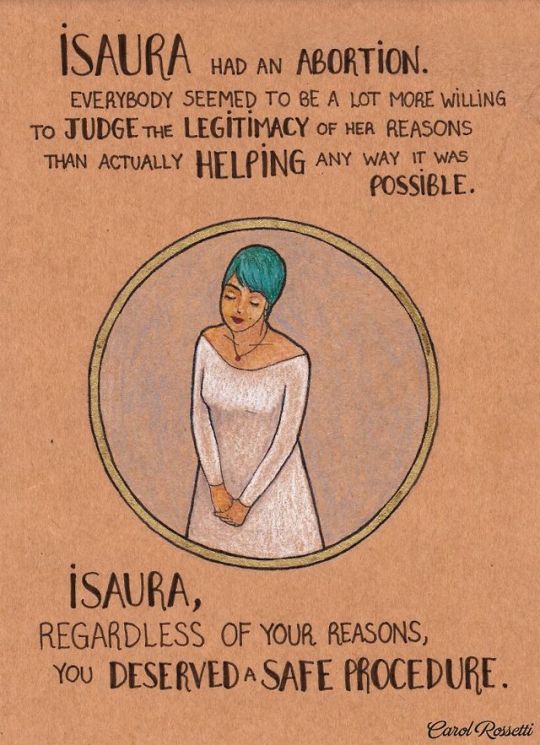
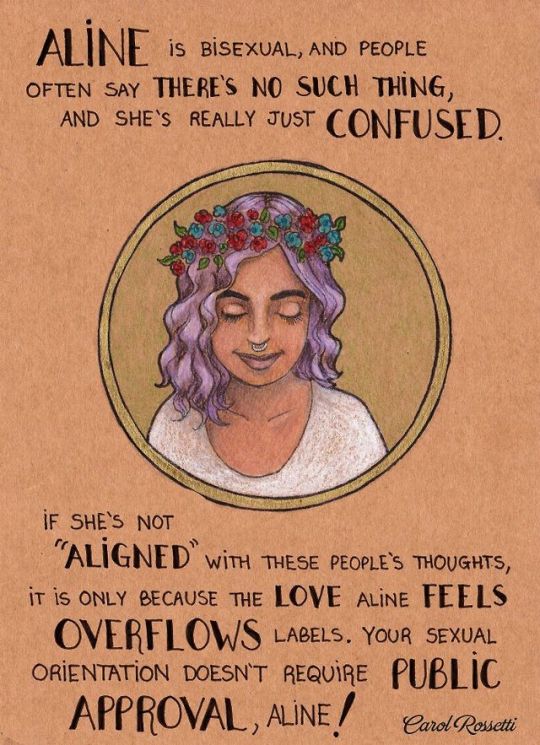

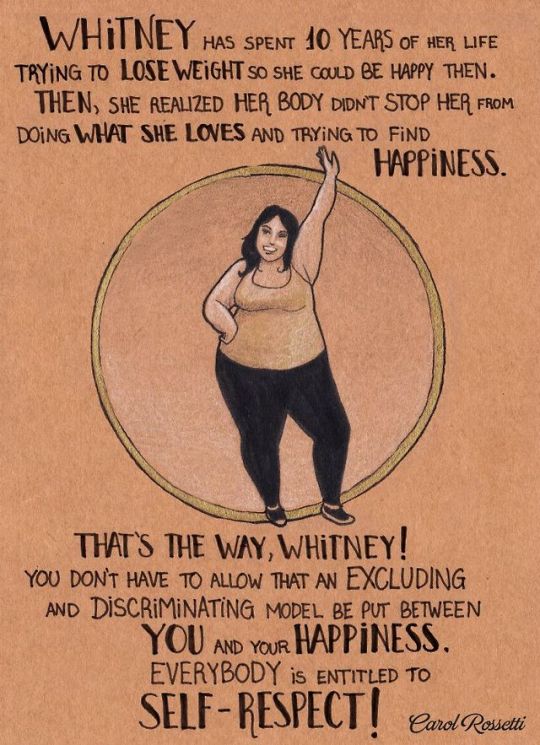

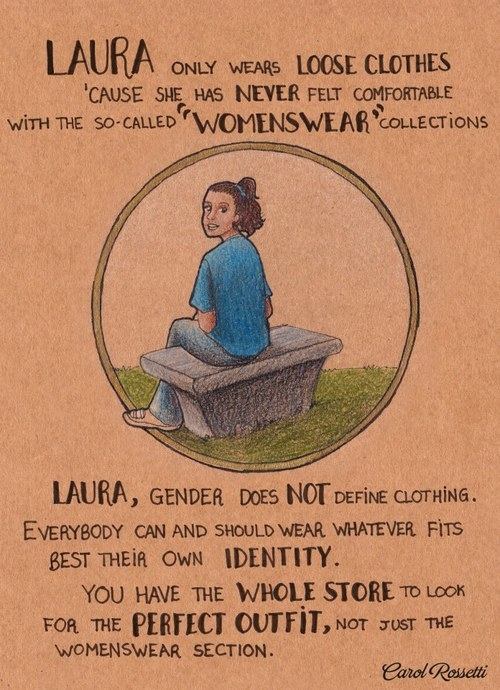
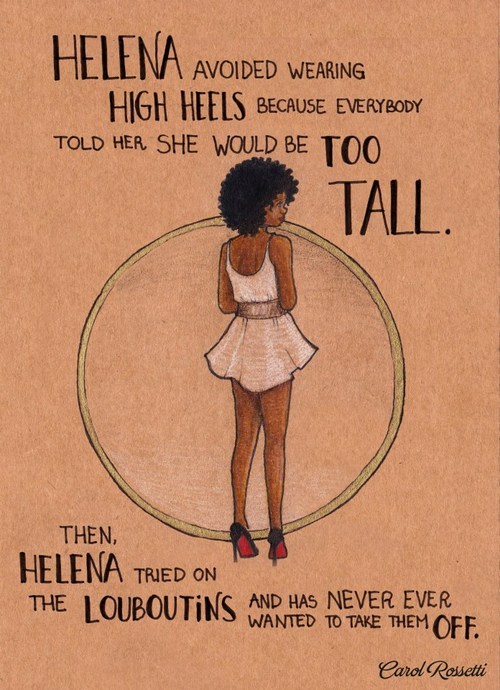


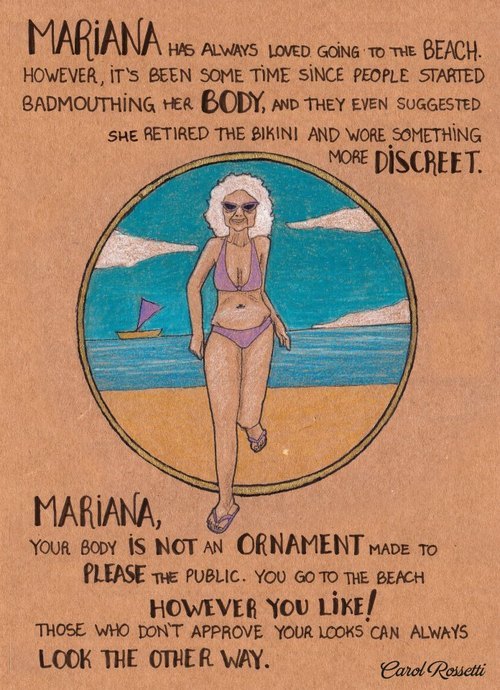
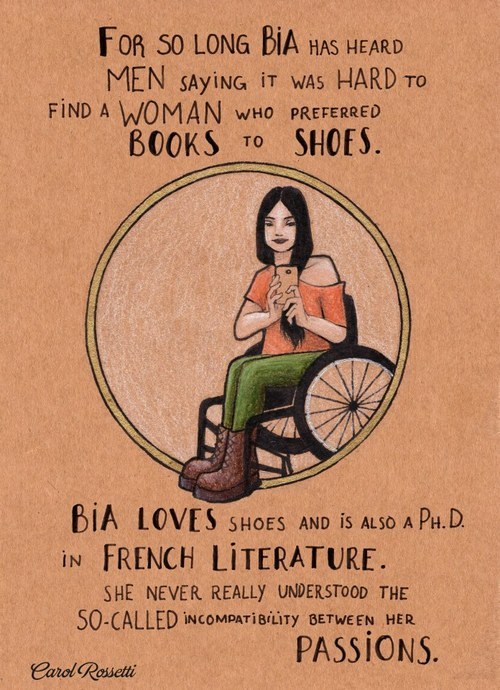


Source
“Image Credit: Carol Rossetti
When Brazilian graphic designer Carol Rossetti began posting colorful illustrations of women and their stories to Facebook, she had no idea how popular they would become.
Thousands of shares throughout the world later, the appeal of Rosetti’s work is clear. Much like the street art phenomenon Stop Telling Women To Smile, Rossetti’s empowering images are the kind you want to post on every street corner, as both a reminder and affirmation of women’s bodily autonomy.
“It has always bothered me, the world’s attempts to control women’s bodies, behavior and identities,” Rossetti told Mic via email. “It’s a kind of oppression so deeply entangled in our culture that most people don’t even see it’s there, and how cruel it can be.”
Rossetti’s illustrations touch upon an impressive range of intersectional topics, including LGBTQ identity, body image, ageism, racism, sexism and ableism. Some characters are based on the experiences of friends or her own life, while others draw inspiration from the stories many women have shared across the Internet.
“I see those situations I portray every day,” she wrote. “I lived some of them myself.”
Despite quickly garnering thousands of enthusiastic comments and shares on Facebook, the project started as something personal — so personal, in fact, that Rossetti is still figuring out what to call it. For now, the images reside in albums simply titled “WOMEN in english!“ or ”Mujeres en español!“ which is fitting: Rossetti’s illustrations encompass a vast set of experiences that together create a powerful picture of both women’s identity and oppression.
One of the most interesting aspects of the project is the way it has struck such a global chord. Rossetti originally wrote the text of the illustrations in Portuguese, and then worked with an Australian woman to translate them to English. A group of Israeli feminists also took it upon themselves to create versions of the illustrations in Hebrew. Now, more people have reached out to Rossetti through Facebook and offered to translate her work into even more languages. Next on the docket? Spanish, Russian, German and Lithuanian.
It’s an inspiring show of global solidarity, but the message of Rossetti’s art is clear in any language. Above all, her images celebrate being true to oneself, respecting others and questioning what society tells us is acceptable or beautiful.
“I can’t change the world by myself,” Rossetti said. “But I’d love to know that my work made people review their privileges and be more open to understanding and respecting one another.””
From the site: All images courtesy Carol Rossetti and used with permission. You can find more illustrations, as well as more languages, on her Facebook page.
519K notes
·
View notes
Text
Tbh I'm bad at twitch/screen recordings but I can't stop laughing at this moment from tonight and I don't know if it was already posted
549 notes
·
View notes
Text
My vampires CAN walk into the sunlight but doing so would reveal what they would look like if they aged normally



Younger vampires don’t have much to worry about but older vamps have reason to avoid sunlight as they age. They are still immortal, but their aged, sunlit selves are significantly weaker than their non-sunlit forms. Vamps over 100 years old run the risk of crumpling over, fully immobile, but still conscious
97K notes
·
View notes
Note
If the creator or something explicitly states they don’t want two characters shipped will you respect it?
11K notes
·
View notes
Text
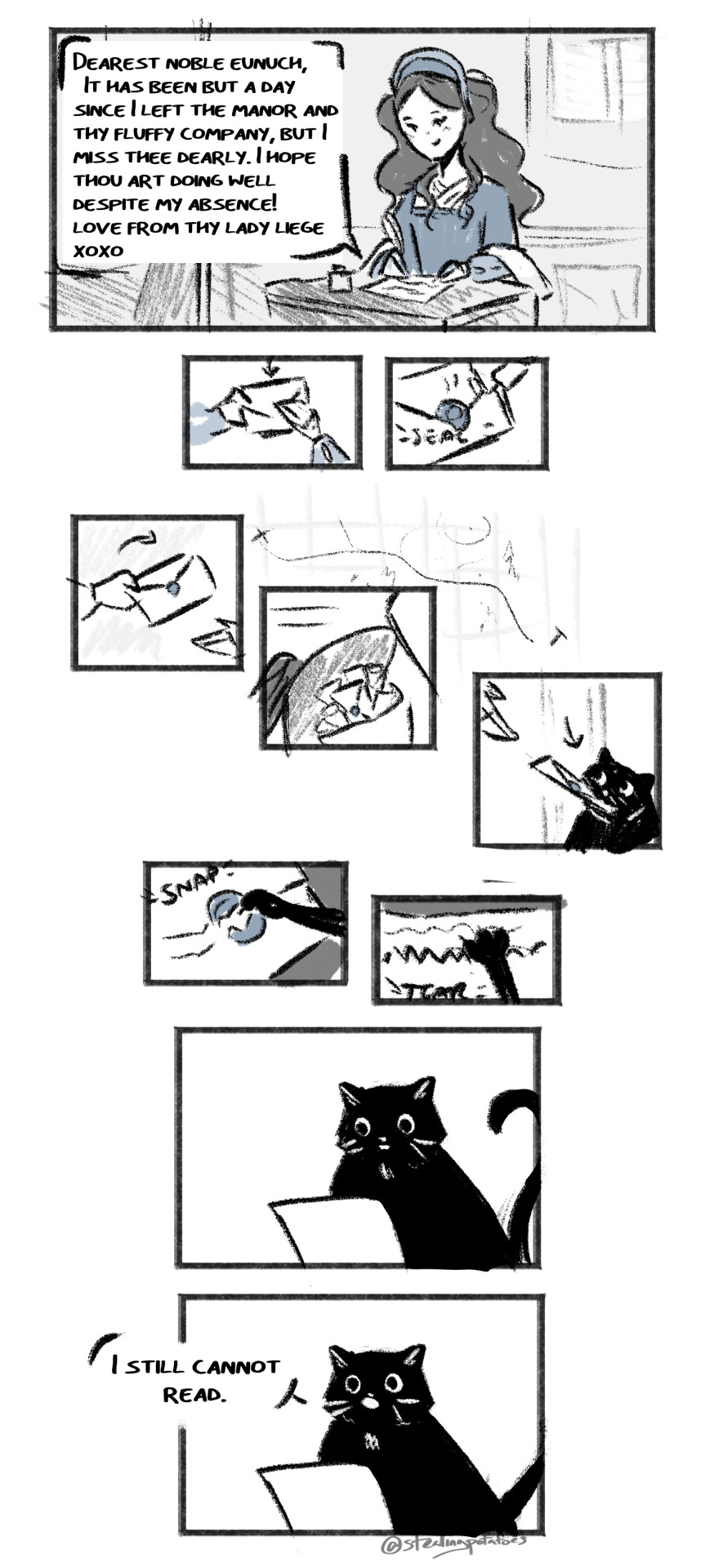
i wish i could text my cat to check on him when I'm out but his whole illiterate thing really gets in the way
18K notes
·
View notes
Text
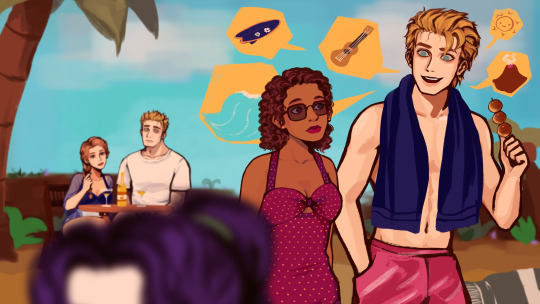
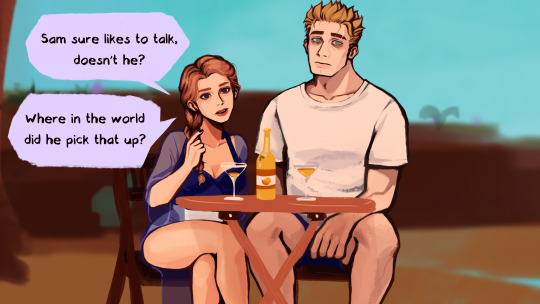
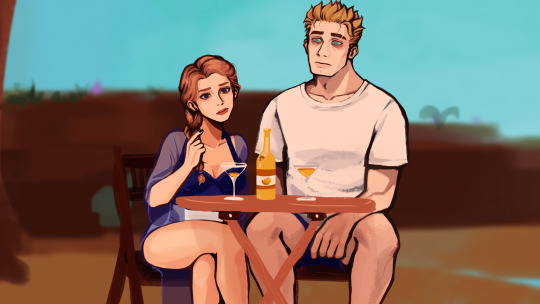




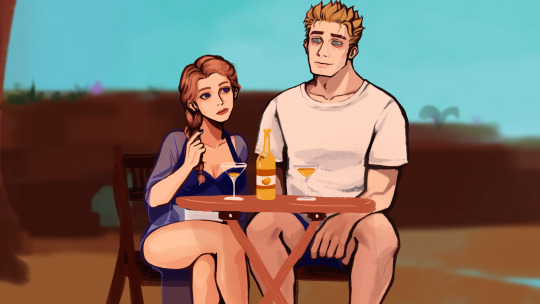
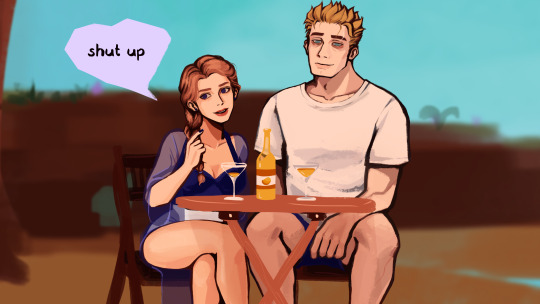
jodi also strikes me as a yapper (at some point at least)
3K notes
·
View notes
Text

Art Fight attack for @cybrrpunqq !
(If you want my page it's https://artfight.net/~Robyn-Snowy-Foxxo! I'm on team crystals!)
2 notes
·
View notes
Text
Fuck it, I didn't want to make a post on this but it's bugging the hell out of me so let's exorcize the thought.
Lilo and Stitch is an extremely good children's movie. I've been working at a daycare for over five years now, and out of all the children's movies I've shown to an auidence of twenty or so school-age kids (i.e. between the ages of 5 and 12), the only movie that's held their attention as well as Lilo and Stitch is The Emperor's New Groove, and the only one that's held it better is An American Tail. Of those three, Lilo and Stitch has won the vote of "what movie we will watch" the most. It not only entertains kids, but emotionally captivates them from start to finish, because it very thoroughly understands how to engage children on their level. It's a smart, tightly written children's movie.
The feat of story-telling genius it pulls of lies in its ability to reach both where children's imaginations want to go and where their lived real-world experiences lie - most children's movies focus on one or the other, but Lilo and Stitch dives deep into both. On the imagination side, there's Stitch's whole plotline of being a little alien monster being chased by other weirdo aliens onto earth because they want to stop him from running amok and causing havoc (which, of course, happens anyway in fun cartoony comedy/action spectacle). On the real-world side, you have Lilo's plotline of being a troubled little girl who has an abundance of very real problems that, like an actual child, she struggles to comprehend and deal with, as well as the many adults in her life that care about her to some degree but all struggle to fully understand her. Kids want to be Stitch and run amok and cause cartoony havoc. Kids, even the least-troubled kids, relate to Lilo, because all of them have been in a similar situation as her at least once in their lives.
Balancing these two very different stories, with very different tones and scopes to their respective conflicts, is a hard writing task, but Lilo and Stitch manages to do it in a way that seems effortless with one very powerful trick. The two plots are direct mirrors to each other, complete with the characters involved in each having foils in the respective plot. To break it down:
Stitch, the wild and destructive alien gremlin who everyone has labeled as a crime against existence, is Lilo, the troubled young girl who's viewed as a "problem child" by all the adults in her life. In both plotlines, Stitch and Lilo are facing the threat of being "taken away" from the life they know because they act out, and in both plotlines, we see that this is an unfathomably cruel thing to do to them and will not actually solve the problems they have.
Dr. Jumbaa, the mad scientist who made Stitch because making monsters is what mad scientists do, and who had no intentions of ever being nurturing or parental to anything or anyone in his life, is Nani, Lilo's older sister whose parents died when she was young and now is forced to act as a parental substitute despite not being mentally or emotionally prepared for that responsibility yet. Both Dr. Jumbaa and Nani are trying to get their respective wild children in line with what society wants them to be, and both are struggling hard with it because they in turn have a lot of growing to do before they can actually accomplish that.
Pleakley, the nebbish alien bureaucrat who ends up being assigned to help Dr. Jumbaa despite being mostly uninvolved in creating the whole Stitch situation, is David, the nice but mostly ineffectual guy who's crushing on Nani and wants to help her but doesn't really have much he can provide except emotional support. Ultimately Pleakley and David prove that said emotional support is a lot more helpful than it seems on the surface, as they give Jumbaa and Nani respectively a lot of the pushes they need to become better in their parental roles.
The Grand Councilwoman, who runs the society of aliens that is trying to banish Stitch forever for his crime of existing, is Cobra Bubbles, the Child Protective Services agent who is in charge of deciding whether or not Lilo needs to be taken away from her home forever for, ostensibly, her own good. Both are well-intentioned and stern, with a desire to follow the rules of society and do what procedure says is the most humane thing to do in this situation, but both lack the understanding of Stitch/Lilo's situation to actually help until the end of the movie.
Finally, we have Captain Gantu, the enforcer of the Galactic Council who is a mean, aggressive, sadistic brute but is viewed as a "good guy" by society because he plays by its rules (well, when he knows can't get away with breaking them, anyway), who is the counterpart of Myrtle, the mean, aggressive, sadistic schoolyard bully who is viewed as a "good kid" by other adults because she plays by the rules they established (well, when she knows she can't get away with breaking them, anyway). Both Gantu and Myrtle are, in truth, much nastier in temperament than Stitch and Lilo, but are better at hiding it in front of others and so get away with it, and often make Stitch and Lilo look worse in the eyes of others by provoking them to violence and then playing the victim about it - in fact, both even have the same line, "Does this look infected to you?", which they say after goading their respective wild-child victims into biting them.
The symmetry of these two plotlines allows them to actually feed into each other and build each other up instead of fighting each other for screentime. The fantastical nature of Stitch's plot adds whimsy to the far more realistic problems that Lilo faces so they don't get too heavy for the children in the audience, while the very real struggles of Lilo in her plotline bleed over into Stitch's plot and make both very emotionally poignant. When both plotlines hit their shared climax, they reach children on a emotional level few other movies can match - the terror of Lilo being taken away from her family, and the emotional complexity of that problem (Cobra Bubbles pointing to Lilo's ruined house and shouting at Nani, "IS THIS WHAT LILO NEEDS?" is so starkly real and heart-breaking), is matched and echoed in the visual splendor and mania of the spectacular no-way-this-is-going-to-work chase scene where Stitch, Nani, Jumbaa, and Pleakley all team up to rescue Lilo from Gantu.
The arcs of the characters all more or less line up. Nani confronts her own failures to be a guardian and parent to Lilo and resolves to do better and learn from her mistakes. Jumbaa, who through most of the movie protests to be evil and uncaring, nonetheless comes to not only care for Pleakley, but more importantly for Stitch too, and ends up assuming the role he never wanted but nonetheless forced himself into from the start: he is Stitch's family. Hell, the moment that reveals this is really clever - Stitch goes out into the wilderness to try and re-enact a scene from a storybook of The Ugly Duckling, hoping, in a very childish way, that his family will show up and love him. Jumbaa arrives and, coldly but not particularly cruelly, tells Stitch that he has no family - that Stitch wasn't born, but created in a lab by Jumbaa himself. But in that moment Jumbaa is proving himself wrong - because Stitch's creator, his parent, DID show up, and did exactly what happens in the story by telling Stitch the truth of what he is. It can't be a surprise, then, that later in the movie Jumbaa ends up deciding to side with Stitch, to help him save Lilo, and to stay on Earth with his child.
David and Pleakley go from being pushed away by Nani and Jumbaa respectively to essentially becoming their partners in the family. The Grand Councilwoman and Cobra Bubbles finally see how cruel their initial solution of isolating Stitch and Lilo from their family would be, and bend the rules they are supposed to enforce to protect and support this weird found family instead of breaking it apart. Gantu and Myrtle are recognized for the assholes they are and face comeuppance in the form of comedic slapstick pratfalls. And most importantly, Stitch and Lilo both get the emotional support and understanding they need to thrive and live happy lives as children should be allowed to do. It's like poetry, it rhymes.
It's a very precise, smartly written movie. It's a delicate balancing act of tone and emotions, with a very strong theme about the need for family and understanding that hits children in their hearts and imaginations. It's extremely well structured.
...
So it'd be kind of colossally fucking stupid to remake it and start fucking around with the core structure of it, chopping out pieces and completely altering others, with no real purpose beyond "Well, the executives thought it might be better if we did this."
37K notes
·
View notes
Text
Thinking about Lilo & Stitch makes me really appreciate certain things about the original + the series. Almost every single named [human] character in the movie isn’t white: the only exception being Mertle, y’know, the bratty little girl we’re not supposed to like.






Besides all of the racial representation, Lilo herself is very much a neurodivergent icon, and her portrayal as the protagonist is amazing considering how characters like her are typically either sidelined or depicted in ways to make them less sympathetic/human (modern media does at least a slightly better job at adressing that kind of thing tho).

So all of that is great, but to anyone that hasn’t seen Lilo & Stitch: The Series, it also does some extremely refreshing stuff.
Pleakley gets tons of validation to dress in drag, everyone always referring to Pleakley as “she” when dressed up as “aunt Pleakley.” There’s even an episode that tackles Pleakley dealing with the pressures of his family that wants him to marry a girl and settle down to have a “normal life.” After the episode's shenanigans, there's a realistic depiction of the misunderstanding of a heteronormative/traditional parent with their non-traditional child: Pleakley's mom says that she just wants her children to be happy, but when Pleakley says that he is happy, she thinks he's only trying to console her as she insists, "How can you be happy? You aren't even married." But Pleakley finally gets it through to his mom when he says, "I don't want to be married, mother! I'm happy just as I am."


After getting to meet all of Pleakley's ohana throughout the episode and hearing from Pleakley himself -after all of the previous misunderstandings- that he really, truly, is happy, she's finally starting to understand.


Even though his mom comments as they leave that she wants him to “try wearing men’s clothes more often,” she still does walk away accepting that she simply doesn’t understand her son's way of thinking. It’ll definitely be hard for her since she’s so much more “traditional,” but she’s finally coming to grips with the fact that her son is who he is, and likes being that way, so she’ll love him regardless. She's trying her best.
The portrayal of people with physical disabilities is also great. It’s not because there’s one recurring character with some condition, but almost because there are non-recurring characters. It isn’t in every episode, but here’s an example: they want to show someone at the park playing fetch with their dog for just one shot. They could very easily have it be any a random person, but they decided to make it a lady in a wheelchair. There's another episode where Nani's friends from highschool show up and one has forearm crutches, but not just because she had some recent accident. No one in the episode questions her condition or feels the need to point it out, the only comment on it being that the friend will use the crutches to lightly bonk the others' arms, and Nani jokes, "You are still deadly with that thing."


The fact that they include characters with disabilities when they "don't have to" makes it that much more normal. These people aren't some special case or the main highlight of the episode, they're just another person. They're normal.
There's so much that all of the original Lilo & Stitch media did right, but now the name will forever be tainted with the association of the remake, which I'm sure will have absolutely none of the tasteful writing and ideas of anything prior to it.
29K notes
·
View notes
Text
when i was initially playing isat, there were a number of things that pinged on my “overused/shallowly used storytelling tropes” radar (specifically, the version of that radar built from reading too many tumblr posts complaining about or otherwise criticizing “tumblry” tropes—regardless of how much or how little i agree in some cases, my Awareness of them has increased).
then i finished the game, and decided that pretty much everything i had been side-eyeing had been more than earned, given weight and depth beyond my expectations.
and then i got my friend to play the game, and he ended up having a lot of similar initial reactions. specifically, when he got to the “family” scene in the full friendquest run through the house.

my friend had a stronger reaction than i did, but what Odile says here is something that both of us fundamentally disagree with. we ended up talking about the value and importance that intergenerational friendships can have—passing on history, providing frameworks for a range of healthy relationships beyond “family” and “peers” (including what respectful boundaries look like when interacting with safe adults), sharing skills and knowledge, forming a supportive network of people that you can turn to if your blood/legal family fails you. humans are a community-based, highly social species; it’s literally fine and good for an old lady to be friends with a preteen.
but it’s a very Odile thing to say, and tbh i’m more similar to her viewpoint in my personal life in that it takes a very specific level of comfort and intimacy before i will truly consider someone a “friend” rather than “someone i know (/friendly).” but he worried that having it said like that, point blank, would reinforce the concept of “you can Only be friends with people your own age, and the only valid relationships outside of that are Family and Romance (aka precursor to Family).” on top of that, there’s the idea that friendships can’t be “enough” on their own, that they always have to be labeled as something else to be meaningful.
which is a fair concern, in my opinion! but in the full context of the game, and in combination with other elements (ex. the Daydreaming One and Bonnie fitting the party into specific family dynamic labels), what Odile says there is kind of a misdirect. because they ARE friends, whatever else they call each other—and because Siffrin’s unique circumstances mean the idea of “friendship” feels so much more terrifyingly fragile and transient than it might to anyone else.
so following that conversation, unable to properly defend the heavy-handedness without delving into major spoilers but still wanting to get my thoughts about it out, i wrote my train of thought into my notes. (for the record, the “defense” i wrote out was no longer necessary whatsoever once my friend finished the game. he Gets It.)
so here’s what i had, hot off the “AGGHHHH I NEED TO TALK TO YOU ABOUT THIS BUT I CAN'T BECAUSE SPOILERS” presses of several months ago (with a couple edits for clarity/more public presentation and to wrap up the end point):
YES friendships can be deep and intense and consuming. that is objectively What Siffrin Is Feeling. HOWEVER. with all due respect, Siffrin’s perspective of interpersonal relationships is fucked and he needs maximum assurance that things aren’t just going to go away.
there are a LOT of levels of friendship. they are relationships that, theoretically, can come and go easily for a lot of people. “we used to be friends.” “someone i used to know.” “an old classmate.” people drop out of contact, change interests and hobbies and lifestyles, move away, get jobs or partners, and suddenly someone who was so important to you becomes a distant thought. someone you might remember on occasion, if you’re reminded they exist somehow.
there are lifelong friendships, too, that can be no less intense or even deeper than the bonds of blood. but how can you know that the person who calls you “friend” means it like that? if the feeling runs deep for you, but the bond is untested by time or distance? what if this is all a friendship of necessity, of convenience, and it will all fall apart as soon as you have no common goal forcing you together?
of course it will! they all say it will, every time they smile and talk about going home to their friends and families and jobs and say I hope you visit! instead of stay, stay, stay with us, we want to stay with you.
it feels like a promise waiting to be broken, when you believe that “this journey meant so much more to me than it did to any of you.”
when your greatest fear is forgetting and being forgotten. (how long until they forget you?)
but the idealized promise of “family” is that the bond does not degrade, that it can persist invisibly in the face of time and distance and change. something that no longer takes persistence to maintain lest you drift apart, because you can survive drifting apart—you will remember, you will be remembered, you will remain connected. something that would instead demand great force or neglect to truly sever.
it does not matter if this is true. Siffrin needs it to be true. they need a bedrock instead of shifting sand, always slipping away from them before they can grasp it. he craves routine, stability, permanence.
there is no guaranteed permanence when it comes to life, to human connection, of course. Siffrin knows this—that everyone they once knew and loved, every bond that might have once shaped them, has been erased, with no means to reclaim what he lost. family included. and Loop acknowledges this, too, at the end—that one day, Siffrin will have to be okay with letting go. he can’t keep them all glued to his side for their entire lives. they know this.
even so, “family” is as permanent as it can get, right? at least, if their friends become family, some of the uncertainty eases. if they all agree on this, it means they aren’t content to let each other fade from memory, to become “someone they traveled with, once upon a time.” so once it’s introduced as a possibility, Siffrin clings, clings, clings to that thought, drawing comfort from the idea that maybe they all feel as much for him as he does for them.
but we know that just saying the word isn’t enough. the loops didn’t break just because they called each other something different. the fear and loneliness run too deep.
even when being called some form of “family,” the bonds seemed so much more thin and fragile than what Siffrin craves.
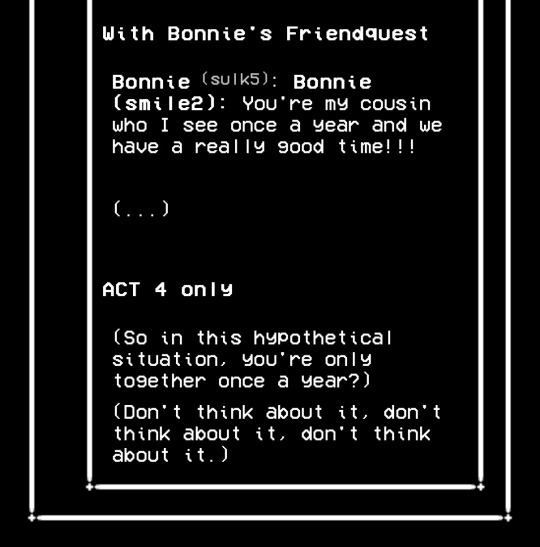
they were all still going to leave.
Siffrin is trying so goddamn hard to be okay with that. they fool themself into thinking they’re okay with that. because they have to be! everyone else has something to return to, it’s normal for them to have lives beyond journey’s end, it’s just him who will have nothing left once it’s all over, and they’re. fine. it’s fine.
if they hadn’t made that wish (and if somehow they beat the king first try), they would have parted ways, maybe visited each other from time to time, and Siffrin would have done his best to cope while loneliness and fear continued to dissolve them from the inside. because that’s the normal friendly thing to do. it’s what all of them expected the others to want, and were all afraid to vocalize otherwise.
i get the pushback against everything being “found family” these days. i get that sometimes people are ““just”” friends, or mentors, or coworkers, or something that defies labeling, and that those relationships are rich and varied and don’t have to have the “family” label slapped on top to be important, pigeonholed into rigid set roles, because a lot of the time it doesn’t fit and only serves to undervalue and warp the nuances of the relationships that they actually are. i LOVE when friendship is treated as something that can drive someone just as insane with love as romance or family. in the real world, people should be encouraged to cultivate a huge range of different types of friendships and relationships to broaden our understanding of the world, each other, and ourselves, and prioritizing family over all else can be actively harmful.
i also think that if Siffrin could conceptualize that fact as something that could be anything but agonizingly one-sided, maaayyyybe the time loops would not have happened! i think that if after All That, the rest of the party had gone “you’re important to us, but like, we still do have other shit to do. we’ll keep in touch though!” Siffrin might have just imploded. actually, sorry, scratch that, that literally happened in the game and the world nearly ended.
this story has to be “found family.” maybe they’ll get there one day, but Siffrin is simply not well-adjusted enough (or at all) to trust that any other kind of relationship is real enough to last. and it takes NEARLY BREAKING REALITY for them to accept even that much! that it’s possible for him, specifically! that the words aren’t empty dreams, that they’ve found something that they’re allowed to keep, that it’s not as one-sided as he’d convinced himself out of fear and self-loathing. that they won’t forget or be forgotten.
if Siffrin didn’t have the exact fears and insecurities and traumas that he has, i might still be looking at all those heavy-handed family conversations and going “urgh, okay, we get it, this is a bit much.”
but now i kinda appreciate those convos way more??? because it feels more like a conversation, a point of contrast with what this story means when it invokes “found family.”
it's not about the rigid roles or cozy aesthetics of family. Siffrin is not looking for a mom or a cousin or a sister or a little sibling. they want a home. somewhere to go, people to return to instead of just “visit.” roots, connection, permanence, safety. that is what “family” means to him. why his sadness is Mal du Pays—homesickness.
that’s also why just saying it isn’t enough! that’s why the final loop had to be ugly and broken. Siffrin needed to see that these people wouldn’t abandon them, even at their worst. that they could see him lashing out and bitter and needy and hurtful and still see someone worth loving. and that they would do this all before the word “family” is ever spoken, and would still do it even if it was never said.
the heavy emphasis on family and labels is, in some ways, a misdirect from the actual problems and the actual solution. the full friendquest run is a fakeout for Siffrin in that "the power of friendship" isn't enough to save them—at least, the one-sided, shiny veneer of it isn't. it takes raw, painful, soul-baring vulnerability—no masks to hide the ugliness, no "i'm fine, tell me how i can help you," no running away. the solution is ultimately "the power of friendship" and/or "found family," whatever you want to call it, as long as by those things you mean something messy and stubborn and mutual in its earnest devotion, riddled with misunderstandings and mistakes and the ever-present capacity to hurt each other, and still, always, bursting with love.
161 notes
·
View notes
Text

I may need this later, for cosplay reasons...
80K notes
·
View notes
